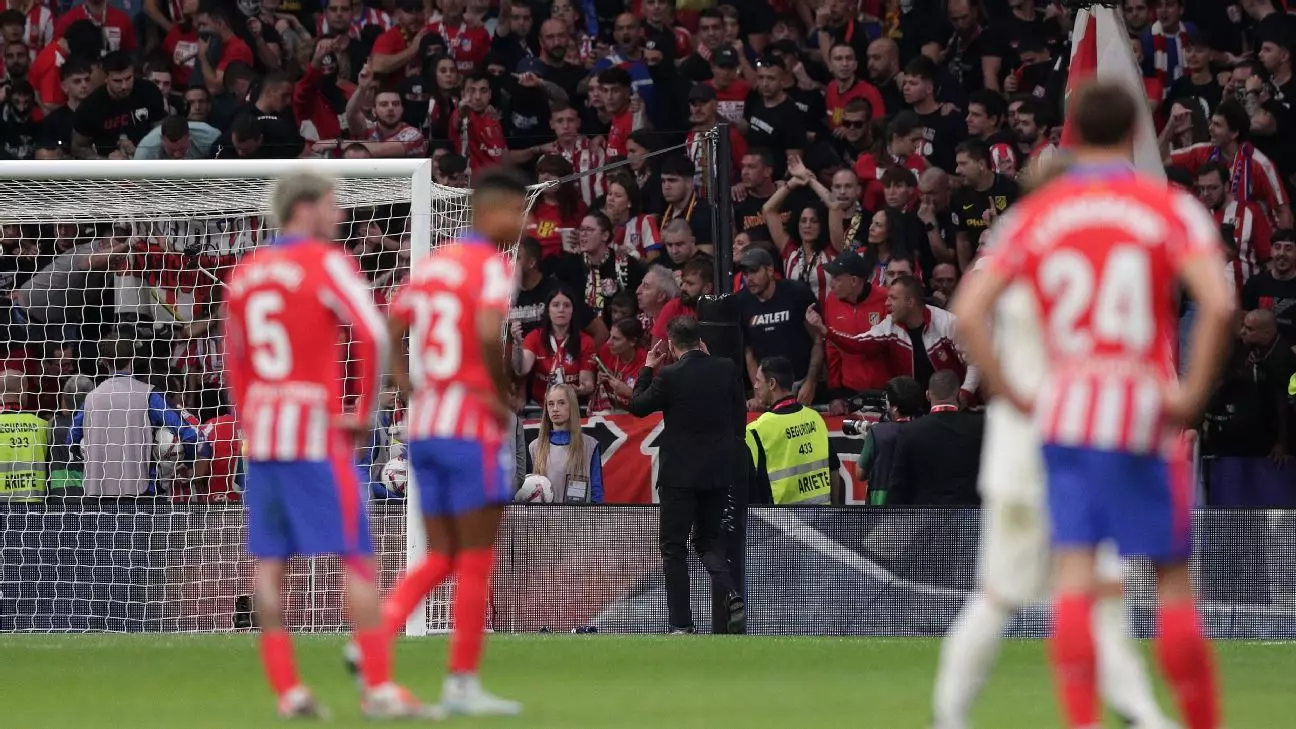The recent Madrid Derby between Atlético Madrid and Real Madrid was overshadowed by an unfortunate incident involving unruly fan behavior. Following the game, Atlético found themselves facing significant repercussions, including a three-match closure of a section of their stadium and a hefty fine. This situation highlights broader issues within sports culture, fan engagement, and the responsibility of clubs in ensuring a safe environment for everyone involved.
During the match, tensions escalated when fans of Atlético threw various objects onto the pitch, leading to a brief suspension of play. Such behavior not only disrupts the game but also poses serious risks to players and officials. In this case, the actions of a few individuals forced a collective accountability on the part of the club, culminating in sanctions from the Spanish football federation. The imposition of a three-game closure of the Fondo Sur, where the incidents occurred, serves as a cautionary tale for other teams about the consequences of failing to manage fan behavior.
Following the event, Atlético Madrid moved quickly to take corrective measures. They imposed a lifetime ban on an identified fan and pledged to work with law enforcement to track down others involved. These steps reflect not only a desire to mitigate future incidents but also an acknowledgment of the club’s role in fostering a safe matchday environment. However, banning one fan alone does not address the underlying issues of fan culture and group behavior that often contribute to such disturbances.
Club Management and Future Implications
In light of the recent events, Atlético’s management has stated their intention to revise entry regulations to prevent fans from donning masks or clothing that obscures their identity. This proposed policy illustrates an understanding that anonymity can lead to a lack of accountability among individuals who engage in reckless behavior. The implementation of such measures may serve as a deterrent to future incidents, but it also raises questions about the balance between fan expression and safety.
Moreover, following the game, prominent figures such as coach Diego Simeone and captain Koke expressed mixed sentiments regarding the situation. While they clearly condemned the actions of the fans, they also pointed fingers at Real Madrid’s goalkeeper Thibaut Courtois for celebrating exuberantly after a goal. Their remarks suggest a perception that player behavior can provoke fan reactions, thus complicating the narrative around who bears responsibility for maintaining decorum during matches.
Referee Mateo Busquets Ferrer found himself at the center of the controversy, as he opted to halt the game following the fan disturbances. His decision to issue multiple warnings before temporarily suspending play underscores the challenges officials face in maintaining order amidst passionate crowds. Real Madrid coach Carlo Ancelotti praised the referee’s approach, recognizing the importance of prioritizing player safety over the flow of the game.
This incident at the Madrid Derby underscores a critical lesson in the world of sports: the actions—whether positive or negative—of players, clubs, and fans are interconnected. Creating an environment that encourages passion without allowing it to overstep into violence remains an ongoing struggle. As clubs navigate the intricacies of fan engagement, adherence to regulations, and ensuring safety, incidents like these reaffirm the need for collective responsibility and proactive measures within the sporting community.

